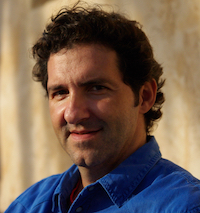By Marco Antonio Robledo for Enlivening Edge Magazine
Business and organisations can be a primary vehicle for transforming society, building a better world, and providing spaces for people to reach their full potential and become something greater than what they were.
That is the vision of 3D Management and other leading-edge contributions such as Reinventing Organizations, Holacracy, sociocracy, beyond budgeting, and conscious capitalism.
They are not far-fetched utopian visions. They are the manifestations of organisational evolution. I deeply believe Teal is the true north to our compass and many organisations are paving the way in that direction.
My book features the cases of more than 60 vanguard organisations that are showing that this new paradigm works anywhere, regardless of country, sector, or size.
My book features the cases of more than 60 vanguard organisations that are showing that this new paradigm works anywhere, regardless of country, sector, or size.
I handpicked the organisations portrayed in the book to show not only the famous examples everyone is talking about (Zappos, Buurtzorg, Morning Star, W.L. Gore, etc.), but also others not so well-known because they don’t come from Anglosaxon countries, but as impressive and important, Ner Group or Cineciutat (both from Spain), Pressto Peru, Ouishare (originally from France), or Knowmad Business School (Holland).
When my dear friends at Enlivening Edge asked me to write a review of my book 3D Management, an Integral Theory for Organisations in the Vanguard of Evolution I couldn’t say no. However, I have built a reputation of being a man with the gift of never doing exactly what he is told, so I decided to write something halfway between the review and the addendum.
The reason is that when I finished writing the book the global pandemic we are currently suffering had not started. During the final proofreading, I was in the middle of the lockdown and I decided to sneak in, here and there, a few comments about the predicament we were facing.
However, I feel it was not enough and, for this reason, I want to focus my review in the following question: How is my book relevant to a post-COVID world?
Take a look at the world right now. This is not how things were supposed to be. Don’t you have the feeling of being in a dystopian science fiction movie, that we are all in a Petri dish subjected to inscrutable experiments of a higher intelligence?
Certainly, this is a delicate period and I believe the book offers some important guidelines to help individuals and organisations navigate this liquid modernity.
Certainly, this is a delicate period and I believe the book offers some important guidelines to help individuals and organisations navigate this liquid modernity.
COVID-19 has shown us how unpredictable, complex, and deeply interconnected is the world we live in. We live in a VUCA world and coronavirus has triggered the mother of all VUCA situations. COVID-19 is likely to be followed by other plagues, like the economic and the environmental.
We can build a future different from the tomorrow we see on the horizon but we need to radically reimagine the way organisations are conceived and managed. The traditional management model has become too incompetent and incomplete to deal with an unforgiving environment, social dissatisfaction, and employee disengagement, and that is making organisations increasingly dysfunctional.
The best vaccine I know of against all these ills is Integral Theory, the world’s first truly comprehensive philosophy. This metatheory masterminded by Ken Wilber as early as 1995 has become an school of thought of increasing influence that spans across all disciplines.
Only an integral perspective can appropriately address the complexity of the future. Global wicked problems and black swans of the scale that we currently face require an integral vision that replaces the current fractured worldview. Integral theory tools, such as AQAL, bring simplicity to the other side of complexity, granting clarity and comprehensiveness to the analysis of any situation or problem.
Initially presented in 2004 in a book written in Spanish, 3D Management (see an earlier article about it here) is a Teal theory (using Laloux’s names for stages of organizational consciousness) and is the first integrally-built management theory.
Ken Wilber himself, the creator of Integral Theory, considered as one of the most important philosophers of our time and the Einstein of consciousness, has given me the honour of endorsing my book with a wonderful prologue that alone justifies its purchase.
3D management shares an Integral/Teal worldview with other integrally-informed proposals such as Laloux’s Reinventing Organizations and Holacracy.
3D management shares an Integral/Teal worldview with other integrally-informed proposals such as Laloux’s Reinventing Organizations and Holacracy.
As I said, one of its singularities is being integrally-built. For example, it analyses organisational reality from as many perspectives as possible and it integrates all previous organisational knowledge in an integral, balanced, and non-marginalising framework. That makes 3D Manage-ment much more than a new theory.
It does something that no other management theory has done before.
Rather than competing with other theories, 3D Management acts as a non-prescriptive and unifying framework that, from a Teal stance, tries to include as many legitimate perspectives, theories, and methodologies as possible
Rather than competing with other theories, 3D Management acts as a non-prescriptive and unifying framework that, from a Teal stance, tries to include as many legitimate perspectives, theories, and methodologies as possible
(including agile or lean methodologies, self-management governance models such as Holacracy or sociocracy, or certification systems like B corps or the Common Good Balance Sheet).
Even more important than that contribution, 3D Management redefines the way we conceive organizations. As I say in the book (p. 328):
“3D Management reboots management … [and] overcomes the flatland one-dimensionality of the traditional paradigm where only profits matter.
Instead, it proposes a balanced triad of science, arts, and ethics, three equally important, independent, and interrelated dimensions that finally converge into a fourth spiritual dimension.
Thus, 3D Management is a summum bonum of science, arts, ethics, and spirit, four key dimensions to achieve sustainable excellence, bring prosperity to everyone they touch, unfold organisational and individual potential, rediscover personal satisfaction at work, raise consciousness, and reinvent corporate spirit.
As a model, 3D Management not only gives its rightful place to each of its constituent dimensions, it also reinvents them. The scientific dimension is redefined by replacing the old authoritarian regime with a holarchical governance system based on responsible autonomy.
The artistic dimension breaks the organisation’s boundaries to merge it with an ecosystem of stakeholders, all equally important and valued, and creates the appropriate mechanisms to spur the horizontal and vertical development of them all.
Finally, the ethical dimension gets promoted for the first time to its rightful place, no longer subordinated to economic results, and geared by kosmocentric values.”
“3D Management, an Integral Theory for Organisations in the Vanguard of Evolution” is the culmination of 4 years of research and writing. It is a work of love. It is a work of purpose. It came out on the 1st of September. I hope you like it. You can obtain it via the following link: https://www.cambridgescholars.com/3d-management-an-integral-theory-for-organisations-in-the-vanguard-of-evolution
For more about this management approach, read Prof. Robledo’s previous description for EE Magazine here.
 Marco Antonio Robledo (PhD, MBA) is a full professor of management and director of
Marco Antonio Robledo (PhD, MBA) is a full professor of management and director of
the MBA at the University of the Balearics Islands (Spain). He defines himself as a change agent that
helps organizations and individuals in their integral development and transformation. He published a
book in Spanish about 3D Management, his pioneer integral theory of management, and several papers
about integral business in a number of conferences and journals. He is the founder and leader of the 3D
Management Club of Conscious Organizations.
E-mail: [email protected]
Featured




